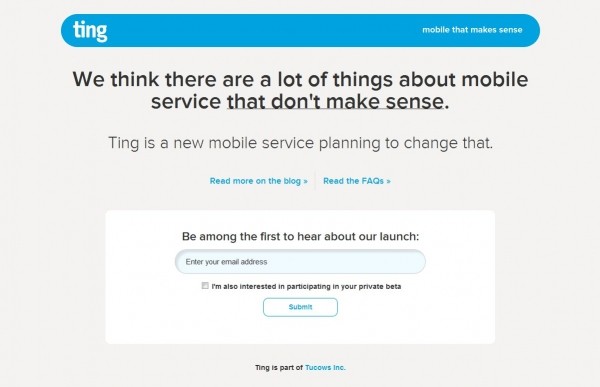These days most wireless phone carriers take every given opportunity to overcharge customers tied into lengthy phone contracts, but news is beginning to surface of a new provider, Ting, that looks set to change this. According to Cnet the new carrier, which aims to launch by the middle of 2012, is going to implement a multi-tier based pricing system depending on monthly usage by its customers.
Those using more minutes, data and text's in a month will be bumped up into higher tiers rather than being charged over-inflated prices as set by the users' fixed monthly allowance. If you use it less one month you will be moved into a lower tier and therefore pay less for your service. The firm says it aims to provide a fair and consistent service for its users without the risk of heavily inflated over-usage charges.

There are a few catches though, one of which will be the requirement of customers purchasing their phones at full cost, out of contract. The upfront cost will therefore be higher, but with no fixed monthly contracts, users are free to leave the service at any point. With lower pricing tiers users will likely save money in the long run.
Another possible problem worth noting is that while the price banding appears an excellent way of structuring monthly bills, it is possible that those who exceed the monthly usage of one band by a tiny amount will end up paying more for the higher band than they would for the overage charges as employed by carriers today.
Ting plans to run on Sprint's existing network, though it currently remains unclear if 4G service will be offered immediately upon its launch. Reading the information available on its website, it quickly becomes clear that the new wireless provider is placing customer satisfaction at the very top of its list of priorities.
We have all been there. We need to discuss something regarding our phone or contract so we ring up, to be greeted by a thousand different options and the almost guaranteed chance that the person you eventually speak with is unable to help you without first transferring you to someone else. Ting will take a different approach – no options and one single department. You make a call, and someone answers it. If they cannot sort it there and then on the phone, the same person will call you back with a solution. Granted, it is nothing new but it is likely to make you feel more of a valued customer and less of a statistic.